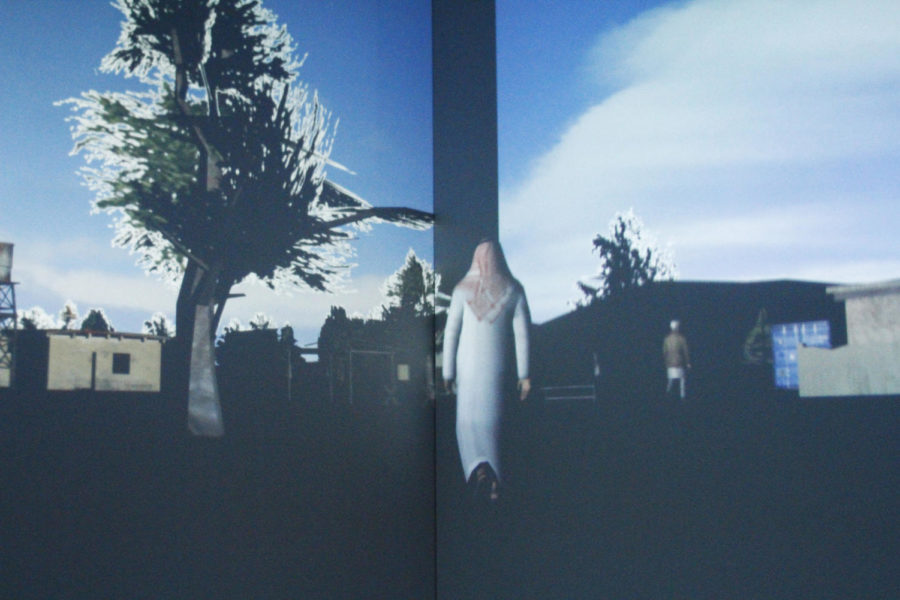Professors use virtual reality to train firefighters
September 17, 2013
Two ISU professors are using Iowa State’s Virtual Reality Applications Center to expand the expertise — and maybe the lifespans — of firefighters, police, paramedics and military personnel.
Nir Keren, associate professor of agricultural and biosystems engineering whose expertise is in occupational safety, wanted to study firefighters under stress in as close to a realistic setting as possible.
He brought in Warren Franke, professor of kinesiology, for his expertise in studying stress levels, heart rates and cardiovascular issues.
With the help of Ames Fire Chief Shawn Bayouth, the professors constructed realistic and stressful scenarios for the virtual reality simulator in Howe Hall that would test the decision-making abilities of firefighters from across central Iowa.
“I like the fact that we have the Virtual Reality Applications Center because we can create a stressful environment without exposing people to risk, and we can also trace the decision making,” Keren said.
By studying 62 firefighters, with a range of one to 30 years of experience, the professors looked at the stress levels of firefighters during a house fire scenario while also looking at the decisions they made and how long they took to make their decisions.
Keren and Franke assumed a firefighter with multiple years of experience would take less time in the decision-making process and ultimately have lower stress levels. However, their research showed the more experienced firefighters took longer to make decisions and had higher stress levels than novice firefighters.
The longer decision-making time was most likely related to the firefighters’ years of experience. The researchers speculated this was potentially due to their ability to see more dangers and consequences within the situation, whereas the newer firefighters did not see those implications because they had not yet encountered them.
Keren and Franke hope to establish training tools and methods that could help rookie firefighters — and possibly police, paramedics and military — establish decision-making skills with more speed and safety than if they experienced it on the job.
The simulator is also making it possible to train firefighters in “what if” situations that even experienced firefighters might not have come across yet.
By continuing their research and looking at how stress affects decision-making skills, Keren and Franke are also working to determine what facets of these occupations affect the early deaths of service people. They are looking at indicators such as fluctuations in sleep patterns and how the job’s stress affects firefighters’ cardiovascular health.
In three to five years, Keren and Franke hope to have a more affordable and portable version of a virtual reality simulator that can help train service people all across the country.
“Keren and I both have significant respect for those that help others,” Franke said. “We want to help them do their job better.”
Regardless of whether this version is in the form of a training computer or a system driven across the country, the duo’s goal is to help service individuals make good decisions under stress, without having to first make a life-costing mistake.







